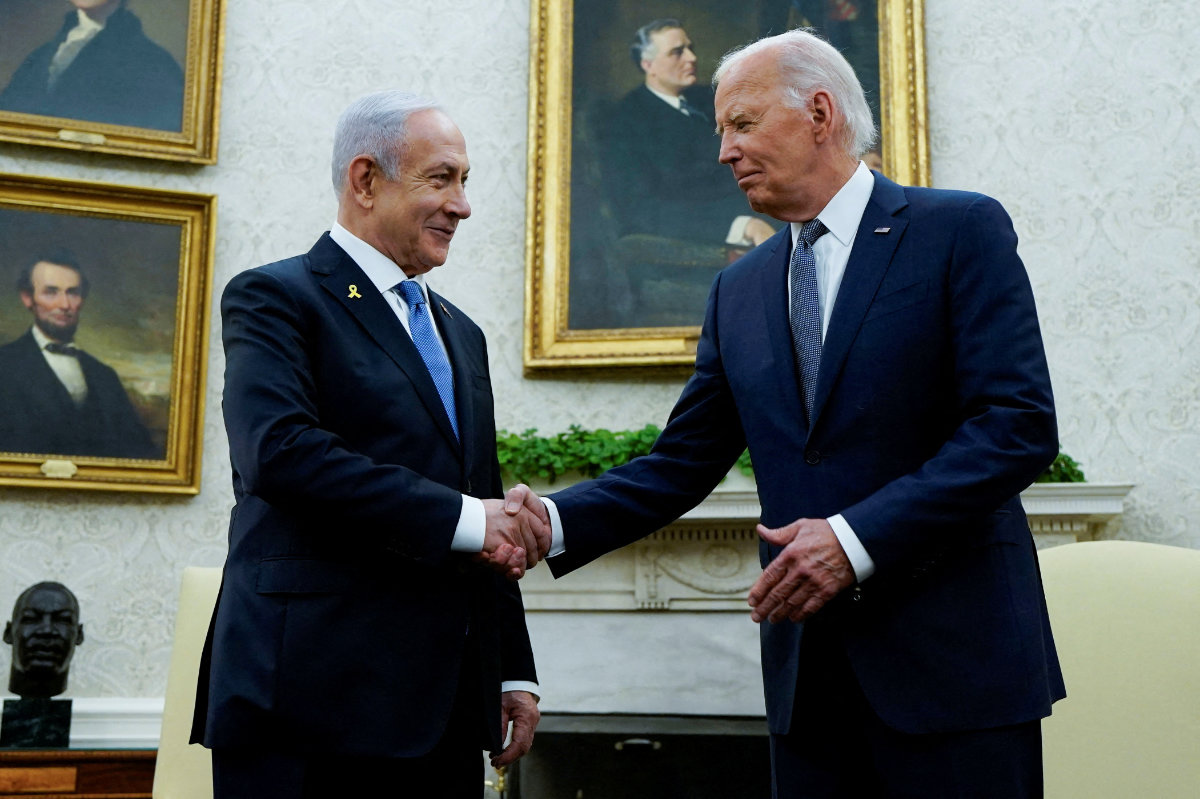BEIRUT: Lebanon’s Hezbollah has made preparations for an all-out collapse of the fracturing state, issuing ration cards for food, importing medicine and readying storage for fuel from its patron Iran, three sources familiar with the plans told Reuters.
The moves, responding to a grave economic crisis, would mark an expansion of services provided by the armed movement to its large Shiite support base, with a network that already boasts charities, a construction firm and a pension system.
The steps highlight rising fears of an implosion of the Lebanese state, in which authorities can no longer import food or fuel to keep the lights on.
They underline Hezbollah’s growing role in tackling the emergency with services that the government would otherwise provide.
The plan chimes with worries in Lebanon that people will have to rely on political factions for food and security, such as in militia days during the 1975-1990 civil war.
In response to a question about Hezbollah’s plans, Leila Hatoum, an adviser to the caretaker prime minister, said the country was “in no condition to refuse aid” regardless of politics.
The sources from the pro-Hezbollah camp, who declined to be named, said the plan for a potential worst-case scenario has gathered pace as an end to subsidies looms in the coming months, raising the specter of hunger and unrest.
Lebanon’s currency has crashed as the country runs out of dollars, with no state rescue in sight. Food prices have shot up 400%.
Fights in supermarkets are now commonplace, as are people rummaging through trash. A brawl over food packages this week killed one person and injured two others.
Hezbollah’s plan would help shield its communities — not only members but also mainly Shiite residents of districts it dominates — from the worst of the crisis, the sources said.
Hezbollah, which with its allies has a majority in parliament and government, did not respond to a request for comment.
“The preparations have begun for the next stage...It is indeed an economic battle plan,” said one of the sources, a senior official.
OUTSIZED NETWORK
Already, the new ration card, seen by Reuters, helps hundreds of people buy basic goods in the local currency — largely Iranian, Lebanese and Syrian cheaper items at a discount up to 40%, subsidised by the party, the sources said.
The card — named after a Shiite Imam — can be used at co-ops, some of them newly opened, in the southern Beirut suburbs and parts of southern Lebanon where Hezbollah holds sway.
An Iran-funded paramilitary force which critics once called “a state within a state,” Hezbollah has grown more entangled in Lebanese state affairs in recent years.
Washington, which deems Hezbollah a terrorist group, has ramped up sanctions to choke off its sources of funding, including what it estimates as hundreds of millions of dollars from Tehran yearly.
Iranian funding keeps Hezbollah better off than many in the country’s mosaic of parties, including those opposed to its arsenal. Some factions have issued aid baskets to their patronage communities, but the Iran-backed network remains outsized in comparison.
“They’re all doing it...But Hezbollah’s scope is much bigger and more powerful, with more resources to deal with the crisis,” said Joseph Daher, a researcher who wrote a book on Hezbollah’s political economy. “This is more about limiting the catastrophe for its popular base. It means the dependency on Hezbollah particularly will increase.”
And while Hezbollah gives ration cards, the state, hollowed out by decades of graft and debt, has talked up the idea of such a card for poor Lebanese for nearly a year without acting.
Ministers have said the need for parliamentary approval has stalled the cabinet’s plan for cards.
DARKNESS AND HUNGER
Photos on social media of shelves stacked with canned goods, reportedly from one of Hezbollah’s co-ops, spread across Lebanon last week.
Fatima Hamoud, in her 50s, said the ration card allows her once a month to buy grains, oil and cleaning products for a household of eight. “They know we’re in bad shape,” she said. “Without them, what would we have done in these tough times?“
A second Shiite source said Hezbollah had filled up warehouses and launched the cards to extend services outside the party and plug gaps in the Lebanese market, where cheap alternatives are more common than pre-crisis.
He said the card offers a quota, based on the family size, for needs like sugar and flour.
The goods are backed by Hezbollah, imported by allied companies or brought in without customs fees through the border with Syria, where Hezbollah forces have a footing since joining the war to back Damascus alongside Iran.
The source added that Hezbollah had similar plans for medicine imports. Some pharmacists in the southern suburbs of Beirut said they had received training on new Iranian and Syrian brands that popped up on the shelves in recent months.
Two of the sources said the plan included stockpiling fuel from Iran, as Lebanon’s energy ministry warns of a possible total blackout. The senior official said Hezbollah was clearing storage space for fuel in next-door Syria.
“When we get to a stage of darkness and hunger, you will find Hezbollah going to its back-up option...and that is a grave decision. Then Hezbollah will fill in for the state,” said the senior official. “If it comes to it, the party would’ve taken its precautions to prevent a void.”



























